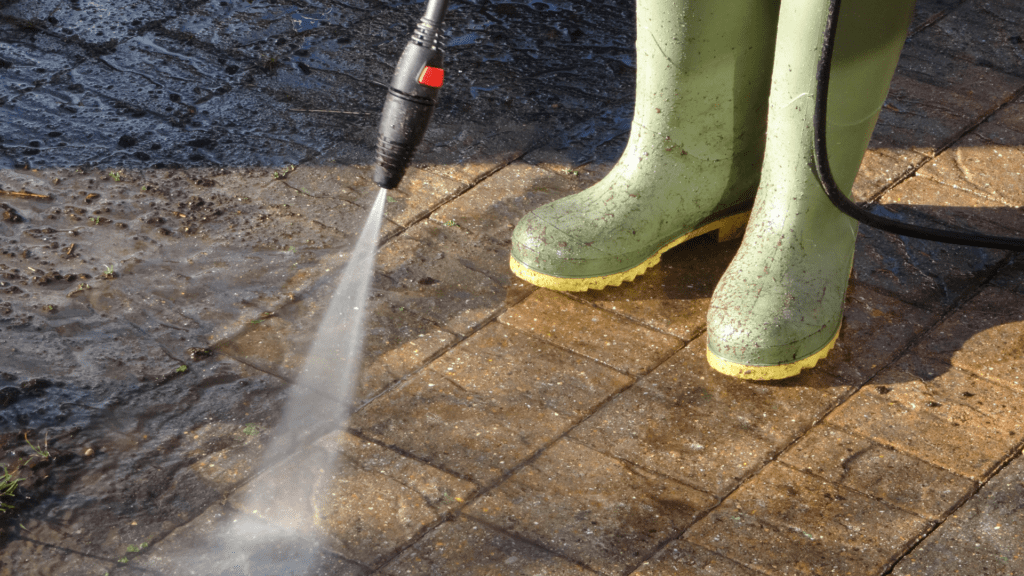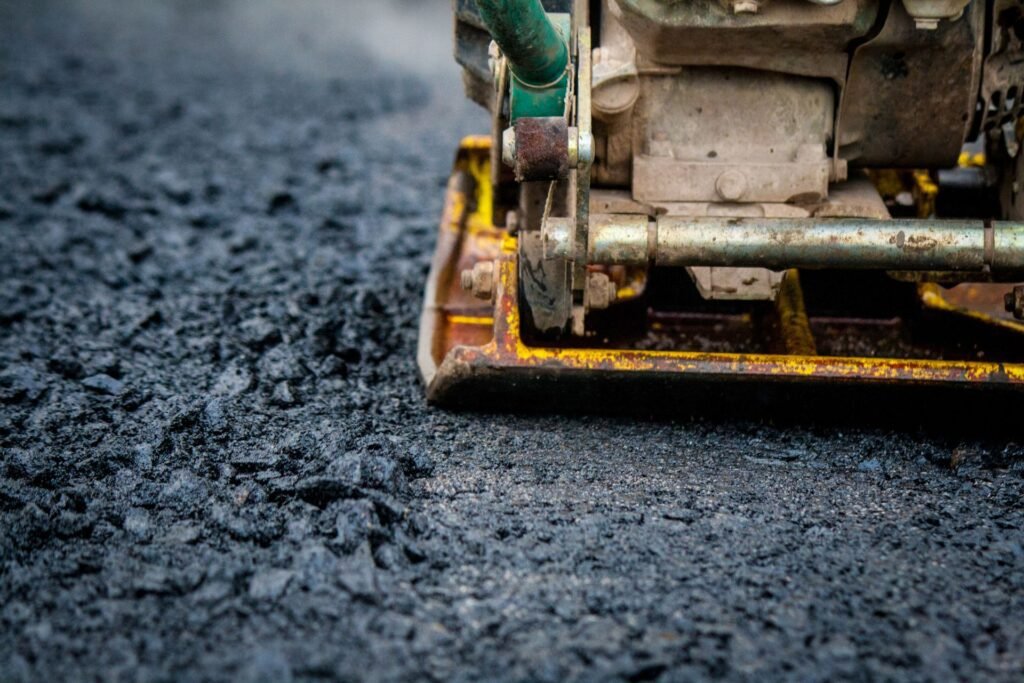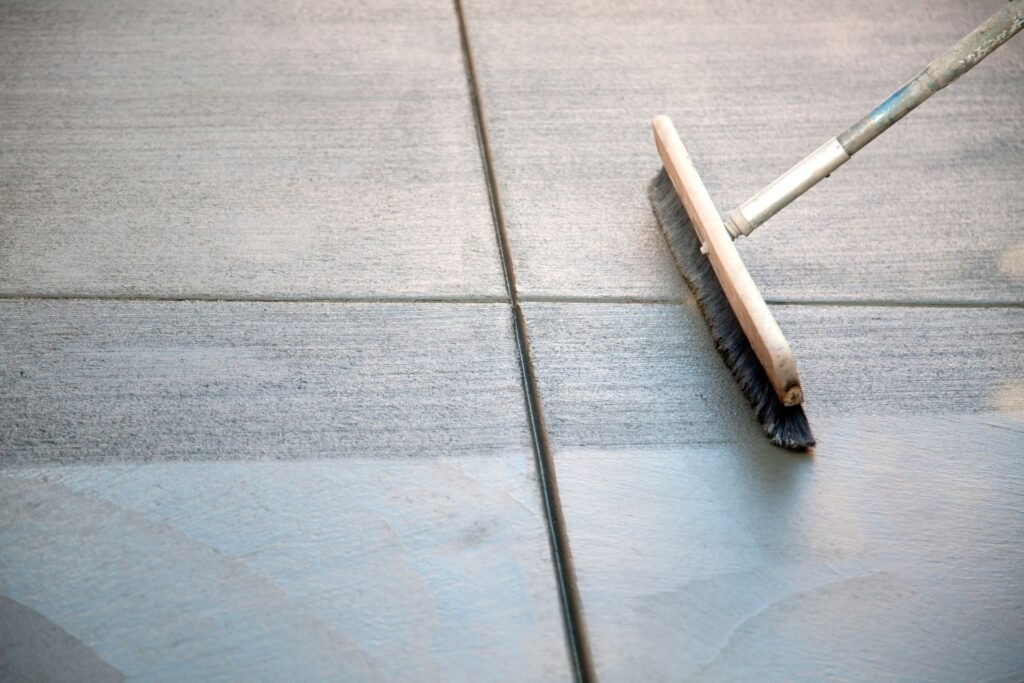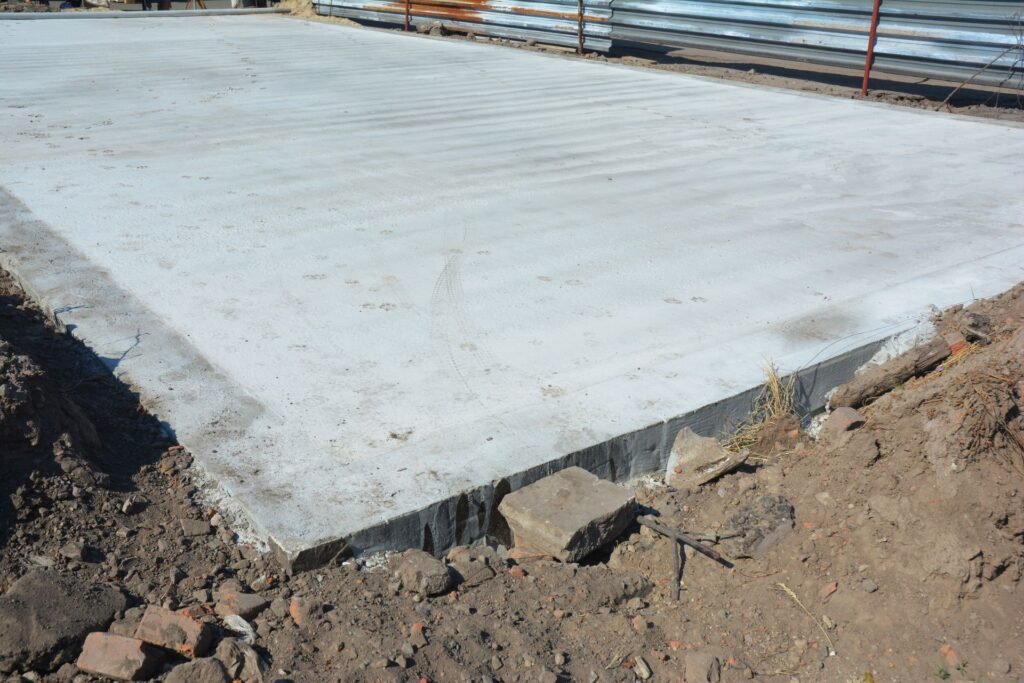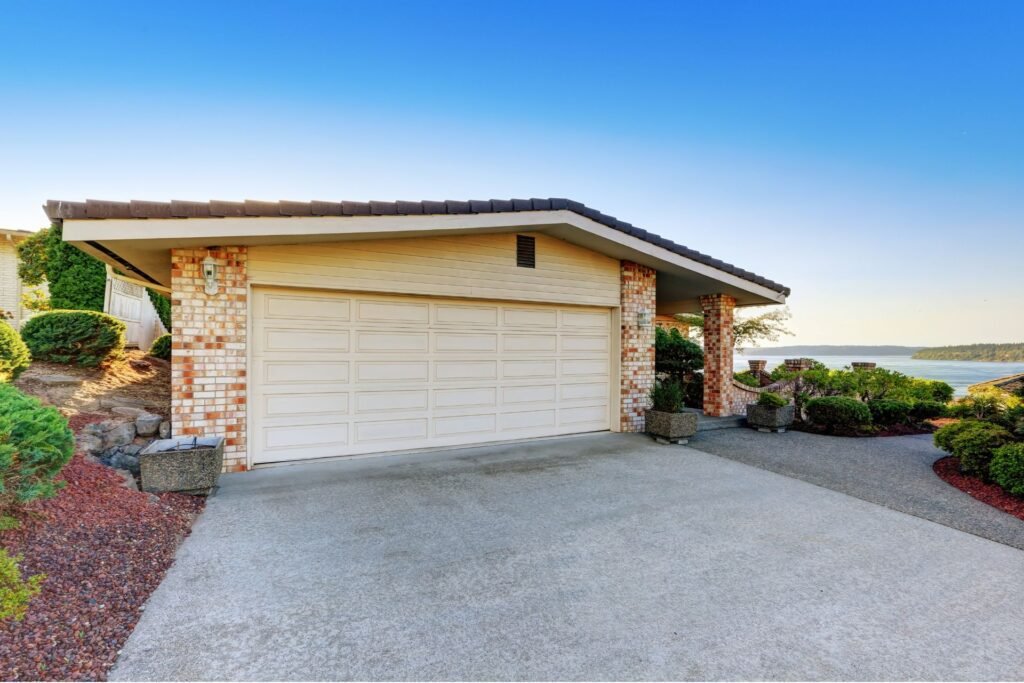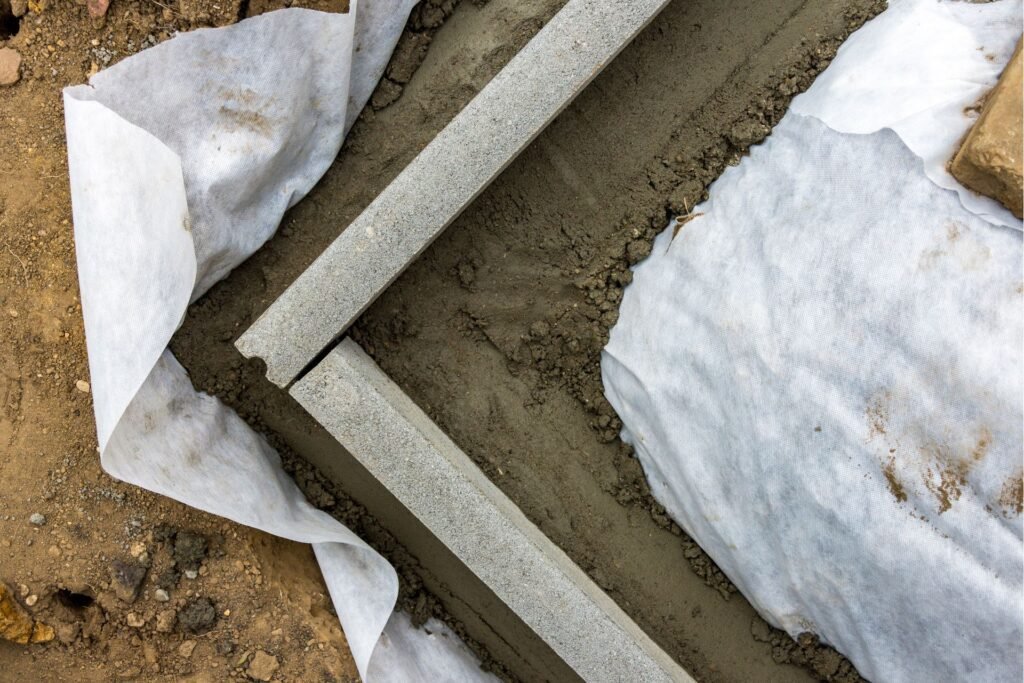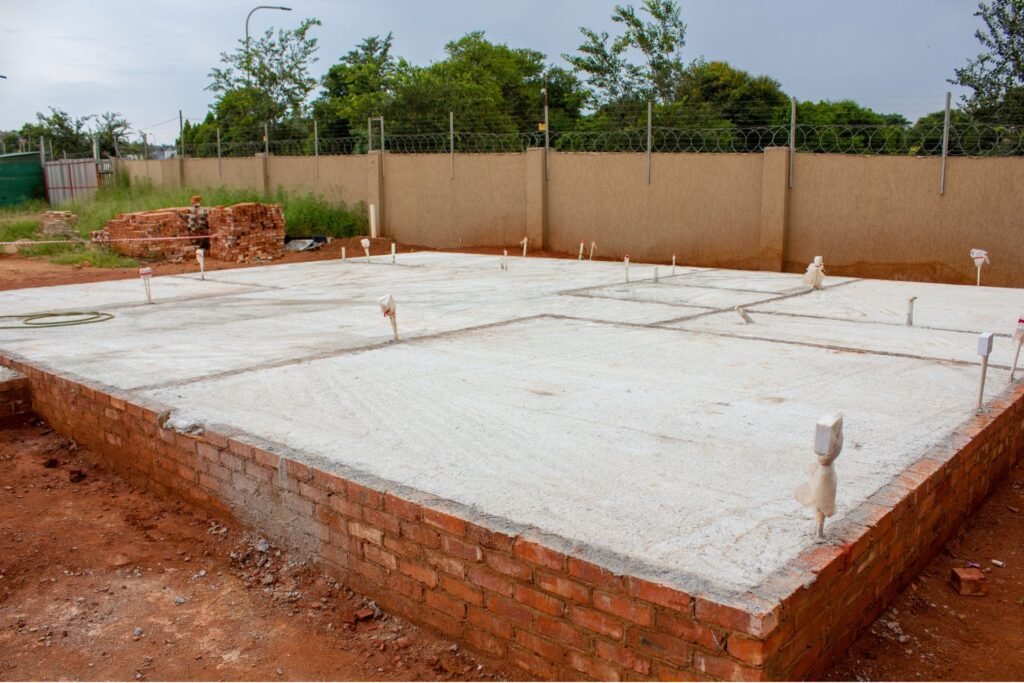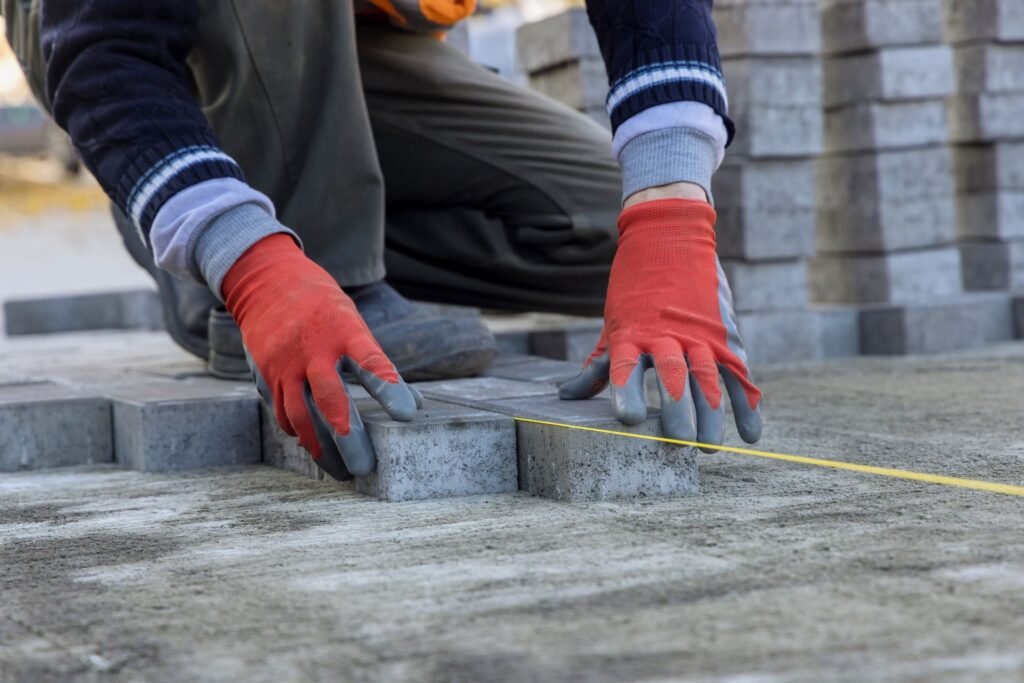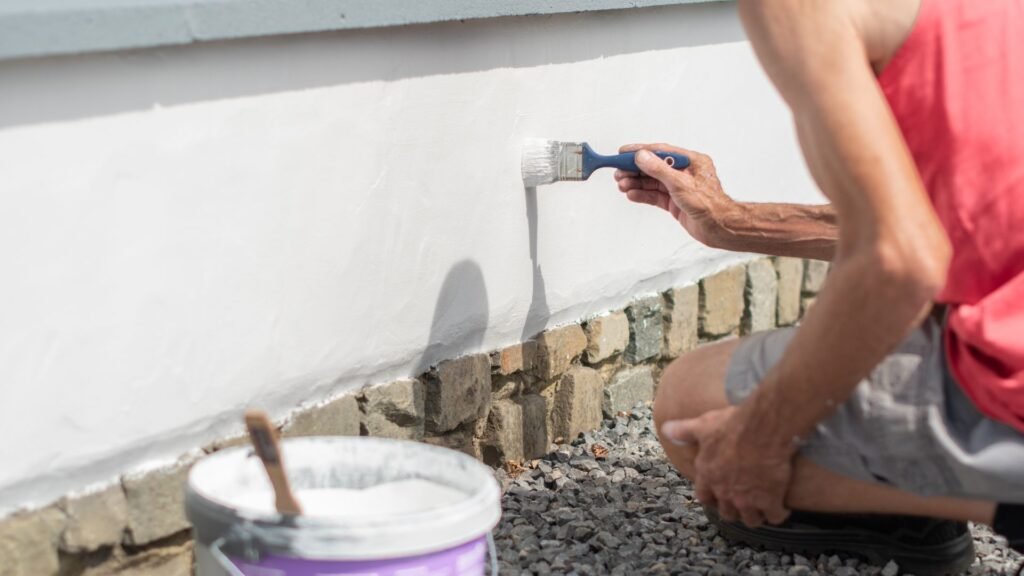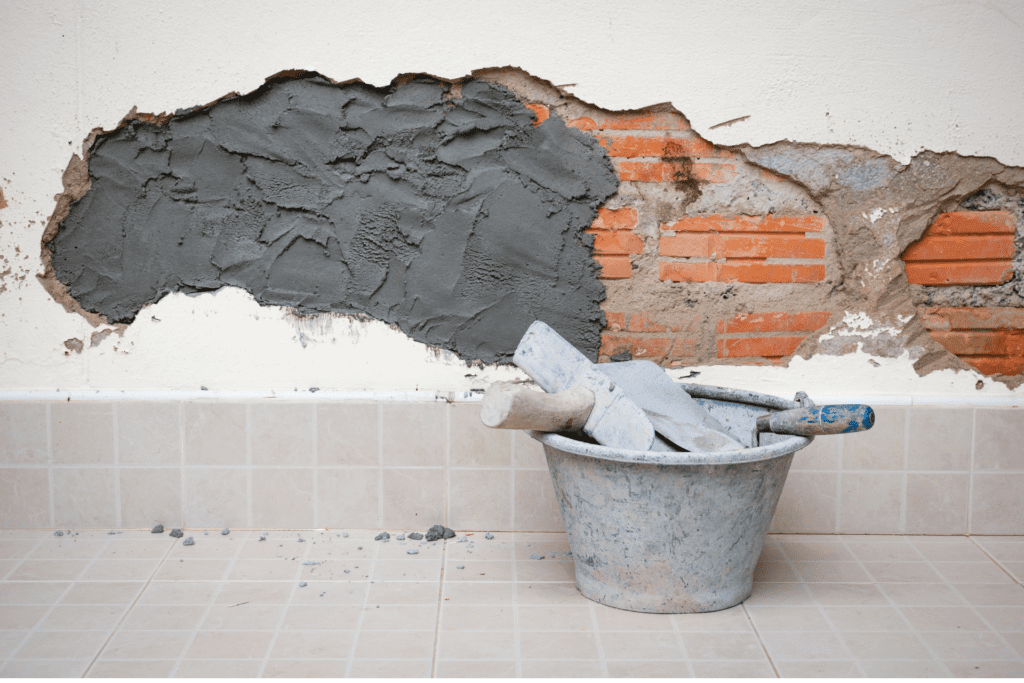Welcome to our guide on how to remove oil from concrete in New Zealand! Whether you’ve had an unfortunate spill on your driveway or garage floor, or simply want to refresh the look of your outdoor space, oil stains can be a frustrating challenge. Left untreated, they can not only mar the appearance of your concrete but also create potential hazards like slippery surfaces. In this post, we’ll walk you through a variety of methods to tackle oil stains, from easy DIY solutions to professional services available in NZ, helping you restore your concrete to its clean, stain-free glory. Let’s get started.
To remove oil from concrete in New Zealand, start by using an absorbent material like baking soda or non-clumping kitty litter to soak up fresh spills. Scrub the area with dish soap and water for light stains. For tougher, older stains, use a concrete degreaser available at NZ hardware stores. Pressure washing can also help remove surface-level oil. If DIY methods don’t work, consider hiring professional services that specialize in oil stain removal. Regular maintenance and sealing your concrete can prevent future stains.
Table of Contents
Understanding The Nature Of Oil Stains On Concrete
Oil stains on concrete are a common but frustrating problem, especially in areas like driveways, garages, and industrial spaces. Concrete, although it appears solid, is a porous material that absorbs liquids easily. When oil is spilled onto the surface, whether it’s motor oil, cooking oil, or fuel oil, it quickly penetrates the concrete’s tiny pores. Over time, this leads to stubborn stains that are difficult to remove, leaving unsightly marks on what should be a clean, smooth surface.
Why Oil Stains Concrete
Concrete is not as impenetrable as it looks. The porous nature of concrete allows it to absorb liquids, including oils, much like a sponge. When oil makes contact with concrete, it seeps into the tiny air pockets and capillaries within the material. The deeper the oil penetrates, the more difficult the stain becomes to clean. This is why oil spills on concrete often leave behind dark, greasy patches that can persist for months or even years if left untreated.
The chemical properties of oil make it particularly challenging to remove from concrete. Unlike water, which may evaporate or dry up, oil clings to the material due to its thick, viscous nature. This means once oil enters the concrete, it binds tightly to the surface, making it resistant to simple cleaning methods like water hosing or scrubbing.
Types of Oils Commonly Spilled
There are various types of oils that commonly lead to stains on concrete surfaces, each with unique characteristics.
- Motor Oil: This is one of the most frequent culprits, especially on driveways and in garages. Whether from a leaking car or a simple oil change gone awry, motor oil can quickly seep into the concrete and leave behind a tough, dark stain. The synthetic compounds in motor oil make it particularly difficult to clean.
- Cooking Oil: In areas near outdoor grills or even kitchen patios, cooking oil is another common source of stains. When spilled, it can spread quickly across the surface and is often overlooked as less harmful compared to motor oil. However, its fatty composition makes it hard to wash away once absorbed by concrete.
- Fuel Oil: In industrial or commercial settings, fuel oil spills are common. This type of oil not only stains the concrete but may also leave a lingering smell if not cleaned up properly. It is typically found near fuel storage tanks or machinery that runs on diesel or other fuel sources.
- Hydraulic Fluids or Lubricants: Found in industrial and automotive settings, these oils are designed to reduce friction in machines. When spilled on concrete, they form stains similar to those of motor oil but may spread more widely due to their slick texture.
Why Act Fast
Speed is critical when dealing with oil stains on concrete. The longer the oil sits, the more deeply it can penetrate the porous surface, making it significantly harder to remove.
- Absorption Rate: When oil is first spilled on concrete, it begins to penetrate the surface almost immediately. Within minutes, it can begin seeping into the deeper layers, making surface-level cleaning insufficient.
- Chemical Bonding: Over time, the chemical structure of oil can bond more tightly with the minerals in the concrete, effectively embedding the stain. This is especially true for motor oil and other petroleum-based products, which have a tendency to solidify or break down into even stickier residues as they sit exposed to air.
- Prevention of Permanent Stains: Early intervention can prevent the oil from creating a permanent mark. By acting quickly, you can remove much of the oil before it soaks deeply into the concrete, minimizing the need for harsh chemical treatments or abrasive cleaning methods later.
- Ease of Cleaning: Fresh oil spills are far easier to clean than those that have been sitting for days or weeks. With immediate attention, often a degreasing solution and absorbent material like kitty litter or baking soda can effectively pull much of the oil out. However, once the oil has dried or hardened, more aggressive techniques like pressure washing or the use of professional-grade cleaners may be required.
Oil stains on concrete can be an eyesore and a challenge to remove, but understanding why they occur and how to deal with them effectively can save both time and effort. The key lies in the porous nature of concrete, which readily absorbs oils like motor oil, cooking oil, or fuel oil. Acting quickly when a spill occurs is crucial to preventing the oil from seeping too deeply and creating a permanent stain. By tackling the problem early and using the right cleaning techniques, you can keep your concrete surfaces looking clean and well-maintained.

Common DIY Methods To Remove Oil Stains From Concrete
Many homeowners prefer to start with simple, cost-effective DIY methods to tackle oil stains on concrete before calling in professional cleaners. This makes sense as DIY solutions are often inexpensive and use items commonly found at home. However, while these methods can be effective for smaller, more recent spills, they may not always work on tougher, older stains. In this section, we’ll explore a few popular DIY approaches, outlining the required materials, the step-by-step process, and the pros and cons of each technique.
Baking Soda and Dish Soap
What You’ll Need
- Baking soda
- Dish soap
- Water
- Scrub brush
Step-by-Step Process
- Apply the baking soda: Directly to the oil stain, ensuring the entire affected area is covered.
- Add dish soap: On top of the baking soda. Use a generous amount, as the dish soap will help break down the oil.
- Scrub the area: With a stiff brush, using circular motions to work the soap and baking soda into the stain.
- Rinse the concrete: With water to wash away the oil and soap mixture.
- Repeat the process: If needed, particularly for stubborn stains.
This method is most effective on small, fresh oil spills. The combination of baking soda, which acts as an absorbent, and dish soap, which breaks down oil, works well for relatively new stains but may struggle with older, set-in spots.
Pros and Cons
- Pros: This solution is cheap, easy to implement, and uses common household items.
- Cons: It may not be effective for large, older, or deeply embedded stains. You might need multiple applications to see results, making it time-consuming for more severe spills.
Kitty Litter or Sawdust
What You’ll Need
- Non-clumping kitty litter or sawdust
Step-by-Step Process
- Cover the oil spill with a thick layer of non-clumping kitty litter or sawdust. Ensure that the entire stained area is covered.
- Allow it to sit for several hours (ideally overnight) so it can absorb the oil.
- Sweep away the absorbent material after it has soaked up as much oil as possible.
- Repeat the process for any remaining residue.
- Effectiveness:This method works well for absorbing fresh oil spills, making it a good first step for newly noticed stains. However, it’s not effective for deep-set or older stains, as it doesn’t actually clean the concrete; it merely absorbs surface oil.
Pros and Cons
- Pros: Kitty litter and sawdust are both readily available and affordable. They are great for quick absorption of fresh spills.
- Cons: They won’t remove the stain completely and may not touch deeper or older stains. This is more of a preventative or surface-level solution.
Degreasers and Specialized Cleaners
What You’ll Need
- A concrete degreaser or oil stain remover (readily available in most hardware stores)
Step-by-Step Process
- Read the product instructions carefully to ensure proper usage and safety.
- Apply the degreaser or cleaner directly to the stained area.
- Let the solution sit for the recommended amount of time (usually 15-30 minutes), allowing it to break down the oil.
- Scrub the area with a brush if required by the product instructions.
- Rinse thoroughly with water, making sure all the cleaner and oil are washed away.
Degreasers and specialized concrete cleaners are specifically designed to break down tough oil stains, making them highly effective for older or more stubborn stains. These products typically offer stronger cleaning power than household items like baking soda or dish soap.
Pros and Cons
- Pros: These cleaners are generally very effective, especially for old, set-in stains that DIY methods might not tackle.
- Cons: They are more expensive than household remedies, and some may require multiple applications. Additionally, care must be taken to follow instructions precisely to avoid damage to the concrete or surrounding areas.
Pressure Washing
What You’ll Need
- A pressure washer (can be rented or purchased)
Step-by-Step Process
- Set up the pressure washer according to the manufacturer’s instructions.
- Adjust the water pressure to a high setting to effectively break down the oil on the surface.
- Aim the nozzle at the oil-stained area, keeping it a safe distance from the concrete to avoid damage.
- Move the nozzle back and forth over the stained area, using steady and even strokes to wash away the oil.
- Repeat the process if necessary, and follow up with a degreaser if any oil remains.
Pressure washing can be a powerful method for surface-level stains, as the high-pressure water can break down and remove oil effectively. However, it may struggle with deeply embedded oil stains that have been left untreated for long periods.
Pros and Cons
- Pros: Pressure washing is effective for cleaning large areas of concrete quickly, making it a good option for wide-scale cleaning or large spills.
- Cons: This method requires access to a pressure washer, which may need to be rented or purchased. Additionally, for deep-seated oil stains, pressure washing alone may not be enough, necessitating follow-up treatments with degreasers or specialized cleaners.
DIY methods for removing oil stains from concrete can range from basic and affordable options like baking soda and dish soap to more heavy-duty solutions such as degreasers and pressure washing. Each method has its own set of advantages and limitations. While simpler methods might be perfect for fresh or small stains, older, tougher stains might require more powerful cleaning agents or equipment.

Home Remedies From Kiwi DIYers
When it comes to handling household issues, Kiwis have a treasure trove of practical, tried-and-true tips that have been passed down through generations. Whether it’s dealing with an oil stain on your driveway or a stubborn grease mark on clothing, these DIY home remedies reflect the resourcefulness and creativity of New Zealanders. In this section, we’ll explore some of the most popular and effective methods Kiwis swear by to combat those pesky oil stains.
The Coca-Cola Method
One of the most popular tricks among Kiwi DIYers for tackling oil stains is using Coca-Cola. Yes, that’s right this beloved fizzy drink isn’t just for quenching thirst; it can also work wonders on tough stains. Here’s how the method works.
- Step 1: Pour a can of Coca-Cola directly over the oil stain. The carbonation in Coke helps to break down grease and oil, making it easier to lift.
- Step 2: Let the Coke sit on the stain for at least an hour. This allows the acids and carbonation to penetrate the stain.
- Step 3: After the wait, scrub the area with a stiff brush or cloth. The abrasive action, combined with Coke’s chemical properties, helps loosen the oil from the surface.
- Step 4: Rinse the area with water and let it dry.
Many Kiwis swear by this quirky method, especially for outdoor surfaces like driveways and garage floors. While it might sound unconventional, anecdotal evidence suggests it can work in certain situations. Of course, results may vary depending on the severity of the stain and the type of surface you’re cleaning.
NZ-Specific Products
Kiwis also have a penchant for using more natural, locally sourced ingredients in their home remedies. Two popular choices for dealing with oil stains include eucalyptus oil and vinegar both of which can be easily found in New Zealand households.
- Eucalyptus Oil: Known for its fresh scent and powerful cleaning properties, eucalyptus oil is a favorite among Kiwi DIYers. To use it on oil stains, apply a few drops of eucalyptus oil directly to the stain and let it sit for a few minutes. Then, scrub the area with a brush or cloth. The natural oils in eucalyptus break down grease and lift stains, leaving the area smelling fresh.
- White Vinegar: Vinegar is another staple in Kiwi kitchens and is often used as a multi-purpose cleaner. For oil stains, mix white vinegar with warm water in a 1:1 ratio and pour it over the affected area. Let it sit for a few minutes before scrubbing. Vinegar’s acidity helps dissolve grease, making it easier to clean. Plus, it’s environmentally friendly and safe to use on a variety of surfaces.
Adding a Local Twist
What sets these home remedies apart is not just their effectiveness, but the cultural context they’re grounded in. Kiwis are known for their practical, no-nonsense approach to household challenges, and these DIY methods reflect that spirit. Whether you’re using Coca-Cola, eucalyptus oil, or vinegar, these solutions highlight the resourcefulness that defines New Zealanders.
Locally sourced, natural products like eucalyptus oil are readily available and fit seamlessly into New Zealand’s environmentally conscious mindset. Meanwhile, quirky methods like the Coca-Cola trick add a bit of fun and creativity to otherwise mundane household chores.
By combining these local tips with a bit of Kiwi ingenuity, you can tackle oil stains in a way that’s both practical and uniquely New Zealand. So next time you’re facing a stubborn stain, why not give one of these methods a go? You might just find that they work as well as, if not better than, commercial products without the harsh chemicals! Incorporating these Kiwi-inspired tips into your stain-removal routine not only helps you maintain a clean home but also connects you with the resourceful, inventive spirit of New Zealanders. Whether you opt for the Coca-Cola method, eucalyptus oil, or vinegar, you’ll be using approaches that have been tried, tested, and trusted by generations of DIY-savvy Kiwis.

When DIY Isn’t Enough
Oil stains on driveways, garages, and concrete surfaces are not only unsightly but can also become a tough challenge to remove, especially if they’ve been sitting there for a while. While DIY solutions might work for fresh spills or minor stains, there are times when professional help is the best (and perhaps the only) option to restore your surfaces to their former glory. Here’s when you should consider calling in the experts and what you can expect from professional oil stain removal services in New Zealand.
Signs You Need Professional Help
While it’s tempting to try a DIY solution first, not all oil stains respond well to at-home remedies. Here are some key signs that it’s time to get professional help.
- Old, Set-In Stains: Stains that have been on the surface for an extended period are often much harder to lift. Over time, oil can penetrate deeper into the concrete, making it impossible to remove with standard household products.
- Deep-Seated Oil and Grease: Oil and grease can seep into porous surfaces like concrete, and once it’s deep in the material, scrubbing with soap and water won’t cut it. You might think the stain is gone, but it often resurfaces after drying.
- Large Affected Areas: When the stained area is extensive, it’s not just a cosmetic issue it can be a safety hazard, especially if it’s in a frequently used driveway or garage. A professional cleaning service will have the right tools to tackle large stains efficiently and effectively.
- Failed DIY Attempts: If you’ve already tried multiple DIY methods and nothing seems to work, it’s likely because the stain requires stronger, industrial-grade cleaning agents or equipment. Professionals have access to products and techniques not available to the average homeowner.
NZ Companies That Offer Oil Stain Removal
If you’re in New Zealand and need expert assistance with oil stain removal, you’re in luck. Many companies offer specialized cleaning services to tackle tough stains on concrete, driveways, and other surfaces. Here are some options to consider.
- Mobile Cleaning Services: Mobile cleaning companies are a popular option in NZ. These businesses bring professional-grade equipment directly to your property, saving you time and effort. They can handle everything from small spots to large stains over a wide area. For example, services like Chemwash or Kiwi Maintenance provide mobile cleaning across New Zealand, utilizing eco-friendly cleaning agents and powerful tools like high-pressure washers.
- Concrete Resurfacing Options: If the stain has caused significant damage or is impossible to remove, some companies offer concrete resurfacing. This involves applying a new layer of concrete or a sealant to cover the stain completely, giving the surface a fresh look. Grind & Seal and NZ Concrete Treatments are examples of businesses that offer concrete resurfacing services, restoring your driveway or garage floor to like-new condition.
- Eco-Friendly Solutions: With growing environmental consciousness, many NZ-based cleaning companies are offering eco-friendly solutions. These services use biodegradable cleaners and water-saving techniques to remove stains without harming the environment. Look out for companies that emphasize sustainability, such as Eco Pro Cleaning.
How Professional Services Work
Professional oil stain removal services use advanced techniques that go beyond what’s available in your local hardware store. Here’s a look at some of the methods they may use.
- Chemical Cleaning: Professionals use specialized chemical agents designed to break down oil and grease. These chemicals penetrate deep into the stain, loosening it from the concrete surface so that it can be easily washed away. They are far more powerful than typical household products but are applied carefully to avoid damaging the surface.
- Sandblasting: For more severe stains, sandblasting might be used. This involves firing tiny particles at high speed against the surface to wear away the stained area. It’s an effective method for concrete and brick, but it requires precision to avoid over-eroding the material.
- Industrial Pressure Washing: Unlike the pressure washers you can buy for home use, professionals use industrial-grade machines that provide much more force. This high pressure allows them to blast away deeply embedded oil and grime, making it a quick and effective solution for large surfaces.
Whether it’s an old oil stain that won’t budge, or you’re dealing with a large, contaminated area, professional services can restore your surfaces to their former appearance. By choosing a trusted NZ company, you’ll save time, effort, and the frustration of dealing with stubborn oil stains on your own. By investing in professional help, you’ll not only improve the look of your property but also prevent long-term damage caused by embedded oil. Whether you choose a mobile cleaning service, eco-friendly option, or concrete resurfacing, the professionals in New Zealand are well-equipped to handle the toughest stains, ensuring your surfaces are clean, safe, and stain-free.

Preventing Future Oil Stains On Concrete
Concrete surfaces, such as driveways and garages, are prone to unsightly oil stains from cars or other vehicles. If left untreated, these stains can penetrate the porous surface of concrete, becoming difficult to remove and leaving a permanent mark. To maintain the appearance of your driveway or garage floor and extend its longevity, it’s essential to take preventative measures. Below are some key strategies you can use to keep your concrete looking clean and free from oil stains.
Sealing Your Concrete
Why Seal Concrete
Sealing concrete is one of the most effective ways to protect it from oil stains. Concrete is a porous material, meaning it can easily absorb liquids, including oil, if left unprotected. By applying a concrete sealer, you add a protective barrier that prevents oil and other liquids from soaking into the surface. This not only keeps your concrete looking clean but also makes it easier to clean any spills before they become permanent stains.
How to Seal Concrete
Sealing your concrete is a relatively simple process that can either be done as a DIY project or by hiring a professional, depending on your comfort level.
- Clean the Surface: Start by thoroughly cleaning the concrete to remove any existing stains, dirt, or debris.
- Apply the Sealer: Once the surface is clean and dry, apply the sealer according to the product’s instructions. This usually involves using a brush or roller to apply a thin, even layer.
- Allow to Dry: After application, allow the sealer to dry completely. This process can take several hours or up to a day, depending on the product and weather conditions.
Products Available in NZ
In New Zealand, concrete sealers are readily available from popular hardware stores like Bunnings and Mitre 10. Some of the best products include Wattyl Solagard Concrete Sealer, Crommelin Concrete Floor Sealer, and Shieldcoat products. Be sure to choose a sealer that’s designed for the type of surface you’re working with, whether it’s indoor or outdoor concrete.
Using Drip Mats or Garage Liners
What Are Drip Mats or Garage Liners
Drip mats and garage liners are designed to catch any oil drips or leaks before they come into contact with the concrete. These products are made from absorbent materials that trap oil, grease, and other liquids, preventing them from staining your driveway or garage floor. They are particularly useful for individuals with older cars or machinery that may occasionally leak oil.
Where to Buy in NZ
In New Zealand, you can find drip mats or garage liners at various automotive and home improvement stores. For example, Repco, Supercheap Auto, and Bunnings offer a range of options that fit different vehicle sizes and needs. Many of these stores also have online shopping options, allowing you to compare products and prices from the comfort of your home. Popular brands include Park Smart, Armor All, and Absorb-A-Mat.
Regular Maintenance
Even with protective measures like sealing and drip mats in place, regular maintenance is key to keeping your concrete stain-free.
Simple Tips for Regular Maintenance
- Clean Your Driveway Regularly: Dirt, oil, and other substances can accumulate over time. A regular cleaning routine can prevent these contaminants from setting in. Use a power washer or a stiff broom with a suitable concrete cleaner.
- Check for Vehicle Leaks: Periodically check under your vehicles for any signs of oil or fluid leaks. Catching a leak early can prevent future stains. If you spot any leaks, consider getting your vehicle repaired as soon as possible.
- Address Spills Immediately: If you notice a spill, act fast. The longer oil sits on the concrete, the more likely it is to seep into the surface. Use absorbent materials like cat litter or a commercial oil absorbent to soak up fresh spills, and follow up with a degreasing cleaner for any residue.
By following these preventative measures, you can significantly reduce the chances of future oil stains on your concrete surfaces. Taking the time to seal your concrete, invest in drip mats, and perform regular maintenance will not only keep your driveway or garage looking pristine but also help maintain the value of your property over time. By implementing these tips and utilizing products commonly available in New Zealand, you can protect your concrete from oil stains and keep your home looking its best.

Environmental Considerations And Safe Disposal In New Zealand
Importance of Safe Practices
When dealing with oil stains, especially in residential areas, it’s crucial to consider the environmental impact of the cleaning products you use. Harsh chemicals often contain toxic substances that can seep into the ground, affecting soil quality, groundwater, and nearby ecosystems. These chemicals, when washed away during rain, may enter stormwater drains, which often lead directly to local waterways. This can harm aquatic life and pollute drinking water supplies.
Using eco-friendly alternatives is not only a more sustainable option, but it also protects both your surroundings and the broader environment. Instead of resorting to harsh chemical cleaners, opt for biodegradable products or natural solutions such as baking soda, vinegar, or even dishwashing liquid for smaller spills. These substances are far less harmful and can still be effective in breaking down oil and grease stains.
For larger or more stubborn oil stains, products specifically designed to be eco-friendly, such as water-based degreasers, are available in New Zealand. These solutions are effective at removing stains while being formulated to reduce their environmental footprint. Switching to green cleaning practices is an easy way to minimize environmental harm while still maintaining a clean, oil-free surface.
Local Disposal Guidelines
Once the oil has been absorbed or cleaned up, proper disposal of contaminated materials is essential to prevent environmental contamination. In New Zealand, there are specific guidelines and facilities dedicated to handling hazardous waste like used oil, contaminated kitty litter, and other absorbent materials.
The first step in disposing of oil or materials used to clean up oil spills, such as kitty litter, is to check with your local council for their disposal guidelines. Most councils in New Zealand offer specific collection points or transfer stations where hazardous waste can be safely disposed of. This helps ensure that harmful substances are not sent to landfill or poured down drains, where they can cause environmental damage.
For example, many transfer stations across New Zealand accept used motor oil for recycling. Some even offer designated oil recycling bins, where the oil is collected and processed to be reused in an environmentally responsible manner. Recycling facilities may also handle other contaminated materials like oil-soaked rags or absorbents.
It’s important to never dispose of oil, chemical cleaners, or absorbent materials in your household rubbish or pour them down the drain. Instead, wrap contaminated kitty litter or rags in a sealed, leak-proof container, and take them to a designated hazardous waste facility. These facilities are designed to handle such waste safely and ensure compliance with both environmental protection standards and local council regulations. By choosing eco-friendly cleaning methods and adhering to New Zealand’s local disposal guidelines, you can reduce environmental harm and contribute to a more sustainable future. Your efforts not only protect the environment but also help keep communities clean and safe from hazardous waste. Always consult your local council or recycling facility for the most up-to-date disposal information, ensuring that you’re complying with current regulations.

FAQs: About How To Remove Oil From Concrete NZ
What is the best DIY method to remove oil from concrete?
The best DIY method depends on the size and age of the stain. For fresh spills, using kitty litter or baking soda to absorb the oil, followed by scrubbing with dish soap, is a good starting point. For older or tougher stains, a degreaser or specialized concrete cleaner will likely be more effective.
Can vinegar remove oil stains from concrete?
While vinegar is a popular household cleaner, it is not very effective at removing oil stains from concrete. It’s better to use a degreaser, baking soda, or other oil-specific cleaning agents designed to break down oil on porous surfaces like concrete.
Is it safe to use a pressure washer on my concrete driveway?
Yes, pressure washers can be safely used on concrete driveways to remove surface-level oil stains. However, it’s important to use the correct pressure setting to avoid damaging the concrete. For deeper stains, you may still need a degreaser or cleaner in conjunction with pressure washing.
How long should I leave kitty litter on an oil spill?
Kitty litter should be left on the oil spill for at least 12-24 hours to allow it to absorb as much oil as possible. For best results, apply a thick layer, let it sit overnight, and then sweep it away before scrubbing with soap and water.
Can Coca-Cola really remove oil stains from concrete?
Coca-Cola is sometimes suggested as a home remedy due to its acidity, but its effectiveness on oil stains is limited, especially for older or deeper stains. It may work on very small, recent spills, but more powerful cleaners like degreasers or pressure washing are typically more effective.
Are concrete sealers available in New Zealand effective at preventing oil stains?
Yes, concrete sealers create a protective layer that makes it harder for oil to penetrate the surface of the concrete. Sealers available at NZ hardware stores like Bunnings or Mitre 10 can help prevent stains, but they need to be reapplied periodically to maintain effectiveness.
What professional services are available in NZ for removing oil stains from concrete?
In New Zealand, there are mobile cleaning services that specialize in removing oil stains from concrete using industrial-strength cleaners, pressure washers, and chemical treatments. Some companies may also offer sandblasting or concrete resurfacing for particularly stubborn stains.
How can I dispose of oil-soaked materials like kitty litter in NZ?
In New Zealand, oil-soaked materials such as kitty litter should not be disposed of in regular household bins. Instead, they should be taken to local transfer stations or recycling facilities that handle hazardous materials. Check with your local council for specific disposal guidelines.
What is the environmental impact of using degreasers to clean oil stains?
Many degreasers contain harsh chemicals that can be harmful to the environment if not used properly. It’s important to follow the manufacturer’s instructions and avoid rinsing the chemicals into storm drains, which can lead to water pollution. Look for eco-friendly cleaners or consult professionals for safe cleaning methods.
How can I prevent future oil stains on my concrete driveway?
To prevent future oil stains, consider sealing your concrete, using drip mats under vehicles, and regularly inspecting for leaks. For BBQ areas or workspaces, using protective mats or trays can catch spills before they stain the concrete. Regular maintenance and prompt cleanup of spills will also help keep your driveway looking clean.
Conclusion
When it comes to effectively removing oil stains from concrete, quick action is crucial. The longer the oil sits, the harder it becomes to eliminate. Several DIY methods, such as using baking soda, cat litter, dish soap, or specialized oil stain removers, can help restore your concrete surfaces. These techniques are not only affordable but also accessible, making them ideal for homeowners looking for a simple solution. However, for stubborn stains or large-scale issues, seeking professional help can provide a more thorough and lasting result, especially in New Zealand, where local experts are well-equipped to handle such tasks. It’s always a good idea to try DIY methods first, but knowing when to call in the professionals can save time and effort. If you’ve found success with these tips or have discovered other effective techniques, feel free to share your experiences or recommendations in the comments section below. Your input could be invaluable to others dealing with similar challenges.
About the Author:
Mike Veail is a recognized digital marketing expert with over 6 years of experience in helping tradespeople and small businesses thrive online. A former quantity surveyor, Mike combines deep industry knowledge with hands-on expertise in SEO and Google Ads. His marketing strategies are tailored to the specific needs of the trades sector, helping businesses increase visibility and generate more leads through proven, ethical methods.
Mike has successfully partnered with numerous companies, establishing a track record of delivering measurable results. His work has been featured across various platforms that showcase his expertise in lead generation and online marketing for the trades sector.
Learn more about Mike's experience and services at https://theleadguy.online or follow him on social media:

